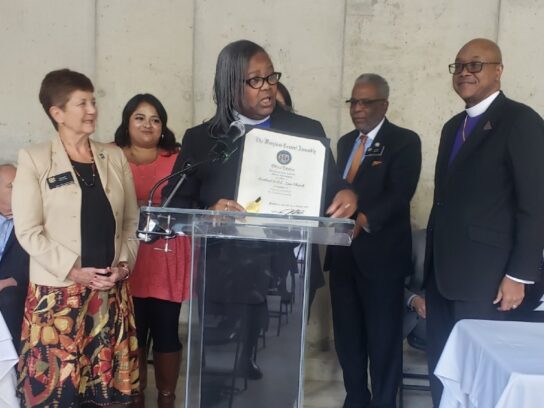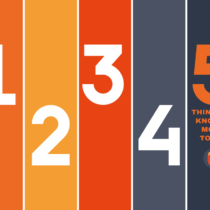
The son of Martin Luther King Jr., a CBS sportscaster, a rabbi and state and county legislators gathered in community Monday afternoon to celebrate both the 100th anniversary of the Scotland AME Zion Church in Potomac and its rebuilding.
The church on Seven Locks Road was built by hand and opened in 1924 as the spiritual home of the local Black community. Many of the descendants are still active members in the church and local community.
The church was damaged severely in 2019 during a flood that collapsed a basement wall and left the congregation without a place of worship of its own for five years.
The church was “the victim not of just floods of rain but also floods of institutional racism,” said Montgomery County Council President Andrew Friedson. Nearby construction forced water run off to flood the church, which was on lower ground, he explained.
Since then, a varied community has come together to try and right that wrong as the church not just rebuilds, but also expands.
Maryland legislators made a $600,000 commitment toward the rebuilding efforts, and the J. Willard and Alice Marriott Foundation contributed $1 million, according to District 15 Delegate Lily Qi, who gave the church a proclamation from the state.
In honor of its 100th year, the Scotland community held a two-hour celebration at the church, which is expected to be completed in about three months. They followed that with a panel discussion entitled From Civil Rights to Now at the National Museum of African American History and Culture in Washington, D.C.

Martin Luther King III praised everyone for their love and sense of community but urged them not to return to their individual corners once the church is completed, much like what happens following a disaster. There is an outpouring of help, love and money only during the crisis, he said.
“We need to continue to work to build a more perfect union” with better schools, better homes, decent jobs and justice, he said.
He also urged everyone to vote.
Friedson agreed it was the community’s job to “carry the baton that their families carried before us,” adding, “We are here to honor the past, and we are here to look to the future.” He stressed, “We are a community that has your back.”
County Executive Marc Elrich spoke about changing demographics. In 1970, Montgomery County’s population was 90% white, and “Black families did not have a right to buy a home.”
Now, according to Elrich, the county’s population is more than 20% Black.
He said he has considered seeking a special reparations tax on those whose homes are built on much of the 500 acres once claimed by the Scotland community. “But I don’t think I can legally do that,” he said.
Rabbi David Saperstein, the former director of the Union for Reform Judaism’s Religious Action Center, called what everyone was doing at the church “God’s work.” adding that, “Jews and the African American community have been bound up in so many ways.”
The church should be restored “not just to its past, but to its present and to its future,” he said, adding, “We build, above all, for the future.”
Emmy award-winning CBS Sportscaster James Brown, who lives three miles from the church, said the church’s rebuilding shows what love can accomplish.
It was a privilege to speak at the 100th anniversary of Scotland AME Zion Church, celebrating the resilience & leadership of the Scotland community. For 100 years, this community has overcome challenges with strength & unity, showing us what’s possible when we lift each other up. pic.twitter.com/o3dRK22csZ
— County Exec Marc Elrich (@MontCoExec) October 14, 2024
Scotland AME Zion Church in Potomac is celebrating its 100th anniversary. @mymcmedia pic.twitter.com/ZVWs2tc9Fs
— suzanne pollak (@SuzannePollak) October 14, 2024

Comments are closed.